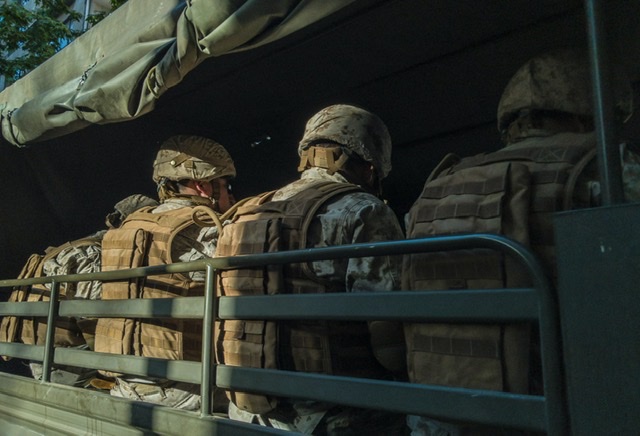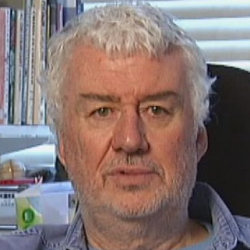The Brereton Report: the failure of political and military leadership
November 22, 2020
Our political leadership will never be the subjects of the Office of the Special Investigator or the Australian Federal Police, nor, therefore, will they ever be charged. Indeed, in their exaggerated innocence they will display only the inevitable hypocrisy of the failed war-maker: a passion for condemning others and a total unwillingness to accept responsibility for their role in their crimes.

The higher military command structures were equally deaf and blind to the warning signs; worse, they might even have ignored them.
Human ingenuity is seldom kind to immutable laws and the concept of effects invariably following necessary and sufficient causes is, therefore, best left to explanations of avalanches and earthquakes. But there are human events that give themselves to confident predictability namely, when the trends are serious, persistent and their trajectory has historically and almost invariably shown to be realised as an unavoidable and corrupt state of affairs. The Report on the Afghanistan Inquiry by the Inspector-General of the Australian Defence Force provides another affirmation of such degeneration among certain elements of elite units in the Australian Army.
An initial, sad reflection of this is that the themes in the accounts to date are all too familiar from notorious precedents: allegations of premeditated and/or gratuitous murder and torture of incapacitated prisoners or non-combatants by personnel embracing a warrior culture which, inter alia, included initiation by ritual killing, falsification of records, and a code of silence all embedded in an atmosphere of calculated criminality and impunity over several years.
The higher command structures were deaf and blind to the warning signs; worse, they might even have ignored them. It was, in all major characteristics, it was operationally scripted in Sparta with overtones of the mafia (or the other way round).
Mutatis mutandis, and briefly, the report details a reprise of the British Army in Yemen in the 1960s, Northern Ireland after 1968, and Afghanistan between 2010 and 2013; the Canadian Airborne Regiment in Somalia in the early 1990s; the New Zealand SAS in Afghanistan in 2010; and the US in Vietnam (the Phoenix Programme and Tiger Force should suffice).
Context is extremely important to explain inevitability: the wars in question were, from the start, or became, wars of choice reflecting imperial power politics rather than principle hence usually illegal, unethical, and unwise. Exacerbating this, they were in theatres of operation that were culturally and politically alien, against enemies difficult, if not impossible to distinguish from the general population, and in which the strategic objectives were either fundamentally unclear, unrealistic, or ridiculous.
Then there is war itself. Given that Australian strategists maintain that Clausewitz is to be taken seriously, then Afghanistan is not the place for reckless alliance enthusiasts to unleash primordial violence, hatred, and enmity, which are to be regarded as a blind natural force; of the play of chance and probability within which the creative spirit is free to roam.
Yet the analyses of the political decision to commit to war in Afghanistan indicate that Clausewitzs warning was precisely what was ignored; it was careless and taken without due consideration of the consequences in general, or the likely failure of the whole enterprise given the record of US in wars of the type likely to evolve.
Add to this, repeated deployments of the special forces units for tasks more appropriately undertaken by conventional formations, combined with no prospect of victory, and the creation is the military equivalent of the realty of both the law of diminishing returns, and mission exhaustion. Eventually, the conviction emerges that victory is a mirage; the campaign, in Yeatsian terms, no more than a trouble of fools, and legal constraint an absurdity.
And all the while the enemys strategy, which included a suite of atrocities masked as tactics, and for which they did not have to apologise, haemorrhaged what remained of the moral fibre of the intervening force.
The predictable consequence for some as the time frame is extended, especially in the elite units and/or those famed for their audacity, and overburdened with dangerous missions requiring exceptional skill, is a process of convergence. They become what they revile and their recourse and refuge is found- in blood-crazed, self-delighting violence which offends even the criminal essence or war in the first place. They become, eventually, unrecognisable to their comrades, as is attested to in various accounts.
The findings of the Afghanistan Inquiry, then, are no surprise. Indeed the genesis of the incidents - many of them obvious - meant that their ultimate realisation was to be anticipated. The country itself was never clay to be moulded by the hands of the West and its occupying armies. It is, rather, an ideal incubator for the developments which have necessitated the Inspector-Generals investigations.
Beyond the inevitability of the events which resulted in the Inspector-Generals inquiry, there is also the inevitability of contradictions and silences: the former relate to the confusion between the reports findings that: commanders are both recognised and accountable for what happens on their watch, and bear a moral command responsibility; that the wrongdoing was widely known and often the subject of gloating by its perpetrators, and yet the higher Defence command system was at not at fault in regard to the commission of war crimes on the grounds that it/they were unaware of them.
This in relation and response to what Major-General Brereton himself describes as possibly the most disgraceful episode in Australian military history.
To accept this is to accept the relevance of a principle in physics which holds that the effect of certain forces - such as light, sound and gravity - on an object varies by the inverse square of the distance between the object and the source of the force until - and here the report modifies physics - the object is out of sight and, therefore, out of mind. But that cannot be the end of it: why was the focus lost?
As for the inevitable silences - these have to do with the political leadership which took Australia to a war in Afghanistan and maintained the countrys commitment to it long after it had conceivable national defence benefit to Australia. Indeed, it became an exercise in the blood sacrifice thought to be demanded by the alliance with the United States.
Specifically, this leadership will never be the subjects of the Office of the Special Investigator or the Australian Federal Police, nor, therefore, will they ever be charged. Indeed, in there exaggerated innocence they will display only the inevitable hypocrisy of the failed war-maker: a passion for condemning others and a total unwillingness to accept responsibility for their role in their crimes.
